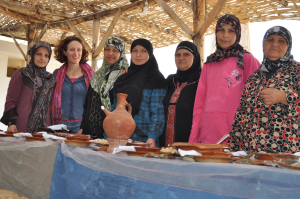
Land Area: 0.1 Km2.
Population: 3000 person.
Permanent Residents: 600 person.
Percent of Migration: 80%.
Kueikh is located in the Bekaa, 8 kilometers away from Caza center in Hermel. It is bordered by Charbine on the south; Qasr on the north east and Fissane on the west. Kueikh is 12 km away from the Syrian border and 151 km away from the capital Beirut. Its altitude is 650 m above sea level Kueikh is divided into five regions: Upper Kueikh, Lower Kueikh, El Horsh, the agricultural / residential region and the agricultural machaa region.
The village has an active municipality of 12 council members and 1 Mukhtar. Fire stations or Civil defense are not found in Kueikh. The nearest station is in Qasr 5 km away from the village. Kueikh has only one elementary public school. The private secondary school and vocational schools are available in Hermel 8 km away. University education is available in Zahle about 100 km away from the village. The infrastructure of Kueikh is poor. Electricity is poorly provided. The telephone system is not set up in the village. The sewage disposal system is missing from the village and only septic tanks are found. Drinking and consumption waters is provided from artesian wells and distributed to the houses. In general, the villagers have low income. Their major source of income is from rearing of cattle, agriculture, and hard labor. The most widespread agriculture is wheat which is used for local consumption and for cattle feed. A major portion of the land is used as forage pastures. The fruit trees cultivated in this village are olive trees and almond trees. Oak tree is one of the prevailing wild trees in Kueikh. It is a tree of the genus Quercus Robur of the family Fagaceae. Oak is the wood for lumber, has some medicinal use and is used for dyes. Turpentine trees are also found in the village. They are small deciduous trees (Pistacia terebinthus) of the family Anacardiaceae, native to the Mediterranean region. It yielded probably the earliest-known form of turpentine, said to have been used in medicine by the ancient Greeks. Moreover, the wild almond trees (Amygdalus communis) belonging to the family Rosaceae are seen in this area. Wild olive trees (Olea europaea) from the family Oleaceae are also common in Kueikh. They are small, straggly trees with thorny branches whose fruit is a small drupe thinner-fleshed and smaller in wild plants than in orchard cultivars.
Kueikh has currently one pharmacy, one traditional healer and one dispensary that open only one day per week. No private clinic or hospitals exist in the village. The most occurring health problems in Kueikh are: hypertension, cardiovascular diseases, diabetes, glaucoma, and neurological diseases.
Eryngo Salad - Kueikh
Fennel Salad
Mallow and Chickpeas
Mallow with Burghol
Wild Thyme salad